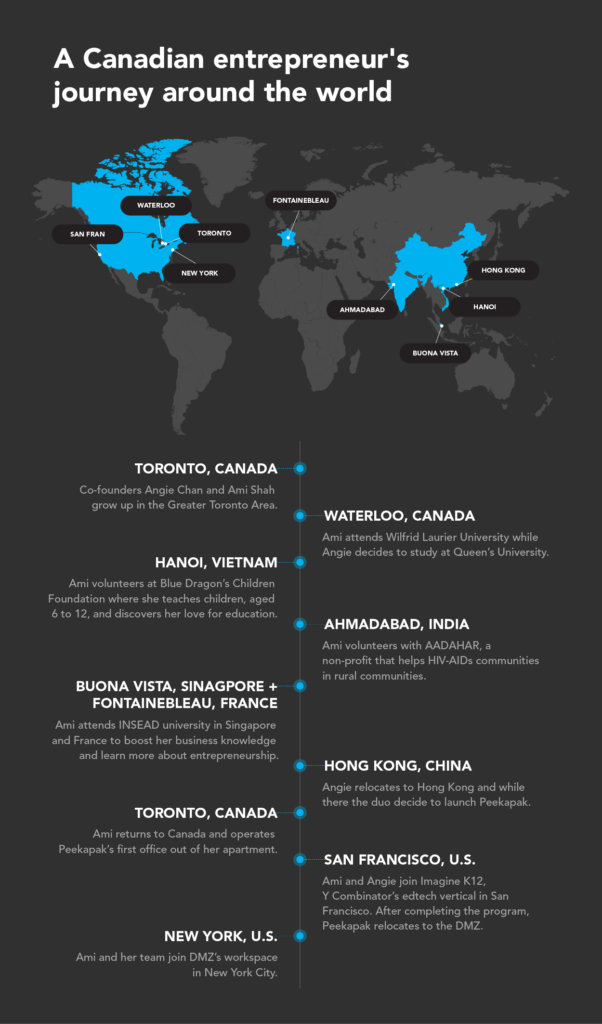Staying productive isn’t easy. Especially when so many of us are bombarded with a steady stream of notifications, breaking news and emails every day. Is it really any surprise that overall productivity is on steady decline these days?
It can be difficult for even the most dedicated worker to stay on track in the face of so many distractions, but for entrepreneurs — who are expected to juggle multiple responsibilities alongside financial pressures and few resources — staying productive can be an almost hellish task.
If you’re looking for ways to combat distractions and improve your work efficiency, here’s a list of the most popular (and little known) apps that will change how you work for the better.
Awesome Screenshot
For developers and designers, it can be hard keeping track of the minute changes that seem to crop up on a daily basis. Projects that require group input often involve sending blueprints or mockups to group members that can end up clogging up inboxes or, in some cases, being ignored entirely.
Awesome Screenshot has found a way to get around that problem using its unique software that lets individuals snap a picture of a project that colleagues can then use to add comments, edits and even blur out sensitive information. These images are saved to an external database, saving crucial email data and giving internal team members or clients a chance to review documents at their leisure.
Where to get it: Find it online and Google Play
Streak
This fairly new plugin may not be widely known, but is definitely an app designed with entrepreneurs in mind. The platform turns your Gmail account into a powerful tool that lets any team member process sales, track product development and group customers into custom boxes to make it easier to contact and analyze.
Its free email templates and in-depth reporting function make it a great system for startups with limited funds.
Where to get it: Find it on the Apple store and Google PlayMove — daily activity reminder
Taking the time to maintain physical health is important. While most apps concentrate on ways to better manage our time, it’s been proven that physical activity can not only increase productivity, but provide long-term mental health benefits.
One of the easiest ways for entrepreneurs glued to their computers to fit in some daily exercise is to take walks. The iPhone app will remind you to take regular, active breaks throughout the day and record your progress over time. It also plays double duty as a gym buddy that features over 300 fitness exercises and the ability to create your own custom circuit training.
For Android users, an app called ‘Move It’ offers up many of the same features listed above with the added option to sync it with Google Fit to provide better step data and calorie counting.
Where to get it: Move: Find it on the Apple store and online. Move it: Google Play store
Have you ever had a great, life-altering idea pop into your head, but forget it because you didn’t have some way to write it down?
Well, Evernote may be able to help fix this annoying problem. The free platform helps users work smarter by letting them create customized to-do lists, upload notes from their mobile device, which can be shared with other users, and even craft personalized audio checklists.
Where to get it: It’s available via the Apple store, Google Play Store and online.
Asana
Asana is the swiss army knife of online management tools. This oddly named application helps you manage tasks, oversee work projects from shared dashboards and track conversations all in one place.
It also allows you to collaborate with team members, assign tasks and schedule due dates so colleagues know exactly what to do and when to do it. Track progress on shared projects and chat about updates with other members all in one place so you can finally ditch those never-ending email chains for good.
Where to get it: Get Asana by going on the web, from the App store & Google Play Store.
Expensify (tracking expenses)
Keeping track of your employees’ financial statements and your receipts can be headache inducing, but Expensify wants to be the antidote to your money woes.
The app’s algorithms not only analyze company expenses in real-time to combat fraud,but also detect which items need an extra pair of eyeballs, such as managerial approval, if the purchase is sensitive in nature or exceeds set company limits. Expensify’s SmartScan features allow users to take pictures of receipts while on the road that are then automatically uploaded and saved indefinitely.
The best part is that it can be integrated with financial products offered by firms like QuickBooks (small business accounting platform), Zenefits (HR management software) and Xero (a data management software company).
Where to get it: Find it online, the iTunes store or Google’s app store.


